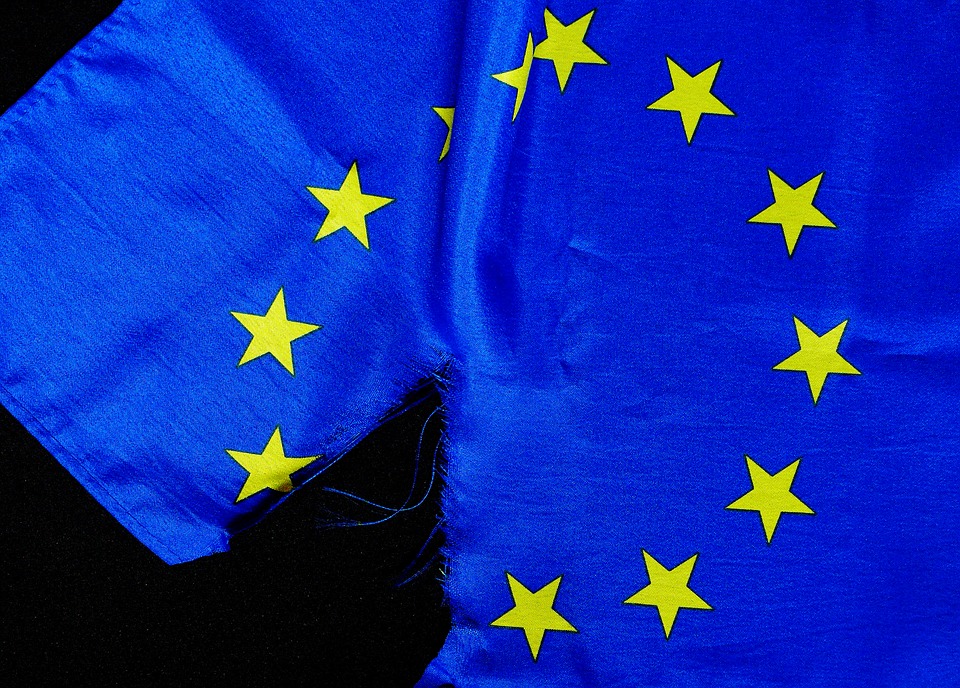Now, attention of the whole Europe is focused on the national referendum on UK leaving the EU. Meanwhile, surveys are showing that in recent years, the idea of the European Union has significantly lost support of many Europeans, not just the British. "The British are not the only ones who have doubts about the European Union. In recent years, image and prestige of the EU throughout Europe rises and falls like a roller coaster, "- says the report of public opinion research center Pew Research. Thus, according to Pew Research, now only 38% of French people perceive the European Union positively. In 2015, this figure was 55% and in 2004 - 69%. The is even situation sadder in Greece, where 37% of Greeks regarded the EU positively in 2012. Now, there are only 27% of them. Britain, which is now preparing for a referendum, looks not bad compared to France and Greece: 44% of British people think about the EU positively. In 2004, the figure was 54%, in 2015 - 51%. In terms of percentage, the whole idea of EU is perceived the worst in Spain: 80% of Spanish citizens were positive about the idea of a united Europe in 2006, in 2015 - 63%, and now the number reduced to only 47%.
Overall, Pew Research studied opinion of more than 10 thousand citizens of ten European countries. The survey was conducted in April and May. Along with the above mentioned, the research was attended by Poland, Hungary, Italy, Sweden, the Netherlands and Germany. The median of a positive attitude toward the EU in these countries is 51%. At the same time, 42% of the citizens of the ten countries believe that Brussels should return more powers and rights to their governments for them to make decisions independently. In addition, citizens of all these countries, except the United Kingdom, were asked for their opinion on Brexit. Just 70% of respondents said that the UK’s leave would have negative consequences for the EU. Especially negatively Brexit is perceived in Sweden, where 89% of respondents expressed disapproval. 32% of the French have called Brexit positive for the EU.
Interestingly, citizens of Poland, Hungary and Italy are the most positive to the idea of a united Europe, according to the survey. Thus, 72% of Poles, 61% of Hungarians and 58% of Italians like a united Europe. Slightly less optimistic are Swedes and Dutch, of which 54% and 51%, respectively, are looking positively to the EU.
The UK’s exit from the EU would be a “tax, stretched in time” for the British and residents of neighboring countries. In 2020, the island's economy would lose 3% of GDP, the other EU countries - 1%, the OECD experts have calculated. Among the short-term effects of Brexit are increase in risk premiums, weakening of the pound and a reduction in capital inflows into the country. In the longer term, the main risk to the UK would be loss of access to the EU single market.
source: bloomberg.com
Overall, Pew Research studied opinion of more than 10 thousand citizens of ten European countries. The survey was conducted in April and May. Along with the above mentioned, the research was attended by Poland, Hungary, Italy, Sweden, the Netherlands and Germany. The median of a positive attitude toward the EU in these countries is 51%. At the same time, 42% of the citizens of the ten countries believe that Brussels should return more powers and rights to their governments for them to make decisions independently. In addition, citizens of all these countries, except the United Kingdom, were asked for their opinion on Brexit. Just 70% of respondents said that the UK’s leave would have negative consequences for the EU. Especially negatively Brexit is perceived in Sweden, where 89% of respondents expressed disapproval. 32% of the French have called Brexit positive for the EU.
Interestingly, citizens of Poland, Hungary and Italy are the most positive to the idea of a united Europe, according to the survey. Thus, 72% of Poles, 61% of Hungarians and 58% of Italians like a united Europe. Slightly less optimistic are Swedes and Dutch, of which 54% and 51%, respectively, are looking positively to the EU.
The UK’s exit from the EU would be a “tax, stretched in time” for the British and residents of neighboring countries. In 2020, the island's economy would lose 3% of GDP, the other EU countries - 1%, the OECD experts have calculated. Among the short-term effects of Brexit are increase in risk premiums, weakening of the pound and a reduction in capital inflows into the country. In the longer term, the main risk to the UK would be loss of access to the EU single market.
source: bloomberg.com





